Search Results
Showing results 81 to 100 of 157
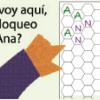
Bloqueo
Source Institutions
Jugando a este juego, los chicos desarrollan habilidades de lógica, geometría, y visualización espacial. Los jugadores empiezan con una red de hexágonos vacía.

pH Scale
Source Institutions
In this online interactive simulation, learners will test the pH of liquids like coffee, spit, and soap to determine whether each is acidic, basic, or neutral.
Fish Family Identification
Source Institutions
In this game, students will become familiar with fish shapes, learn that fish within a given taxonomic family have similar body shapes, and discuss how different body shapes enable fish to survive in

Vocal Visualizer
Source Institutions
With a bit of PVC, a laser, a can/cup, and a small mirror, you can make a device that visualizes you voice or any sound transmitted into the cup/can.

Dicey Directions
Source Institutions
In this game, learners are stuck in a right turn only world! Learners take turns rolling a die and moving their game pieces along the lines of a grid to get "home," by only making right turns.
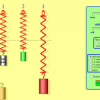
Masses & Springs
Source Institutions
In this online activity, learners use a realistic mass and spring laboratory. They hang masses from springs and adjust the spring stiffness and damping.
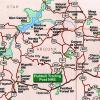
Are We Almost There?
Source Institutions
In this mathematics activity, learners use a map to determine the coordinates of and distance between two locations--both by road and "as the crow flies".
Flesh Out a Fossil
Source Institutions
In this activity, learners discover how artists start with a skeleton and turn it into a realistic drawing of a dinosaur.
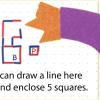
Close It Up
Source Institutions
As learners play this challenging strategy game, they build understanding of area and perimeter. On each turn, a player draws a line between two dots next to each other on the grid.

Nowhere to Hide
Source Institutions
In this online simulation, learners can see adaptation and camouflage in action.
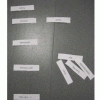
Life Size: Line 'em up!
Source Institutions
In this activity on page 1 of the PDF, learners compare the relative sizes of biological objects (like DNA and bacteria) that can't be seen by the naked eye.
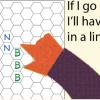
Four in a Line
Source Institutions
This strategy game has simple rules but can be a challenge. Players start with an empty hexagonal grid. On each turn, a player initials one empty hexagon on the grid.
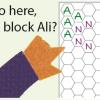
Touch and Go
Source Institutions
As learners play this game, they develop logic, geometry, and spatial visualization skills. Players start out with an empty hexagonal grid.
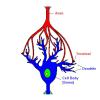
Neuron Chain Tag
Source Institutions
In this outdoor activity, learners play a game of Tag to discover how neurons attach themselves to each other to form a chain.

Anti-Gravity Cups
Source Institutions
In this activity, learners will use simple materials to explore centripetal force and variables by swinging a cup of water without having the water spill out.

Who Eats What?
Source Institutions
This activity is on page 10 (continued on the right side of page 11) of the pdf, part of the Forest Animals Discovery Box. In this game, learners act out the food web.
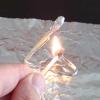
Physics by the Fire: Matchstick Rocket
Source Institutions
Learners build a small rocket using a matchstick and a piece of aluminum foil. A second, lit match launches the match rocket. This activity involves fire; adult supervision required.
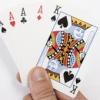
Two Sets!
Source Institutions
In this card game, learners make two sets of three cards that are alike. Learners must justify to the rest of the players why the three cards belong in each set.
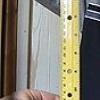
How Fast Are You?
Source Institutions
This activity is designed to let learners measure their reaction time or response time to something they see.

Your Body in Your Mind's Eye
Source Institutions
This activity is about how you form mental images of your body's position in space, independent of vision. Can you take a sip of water from a cup with your eyes closed?
